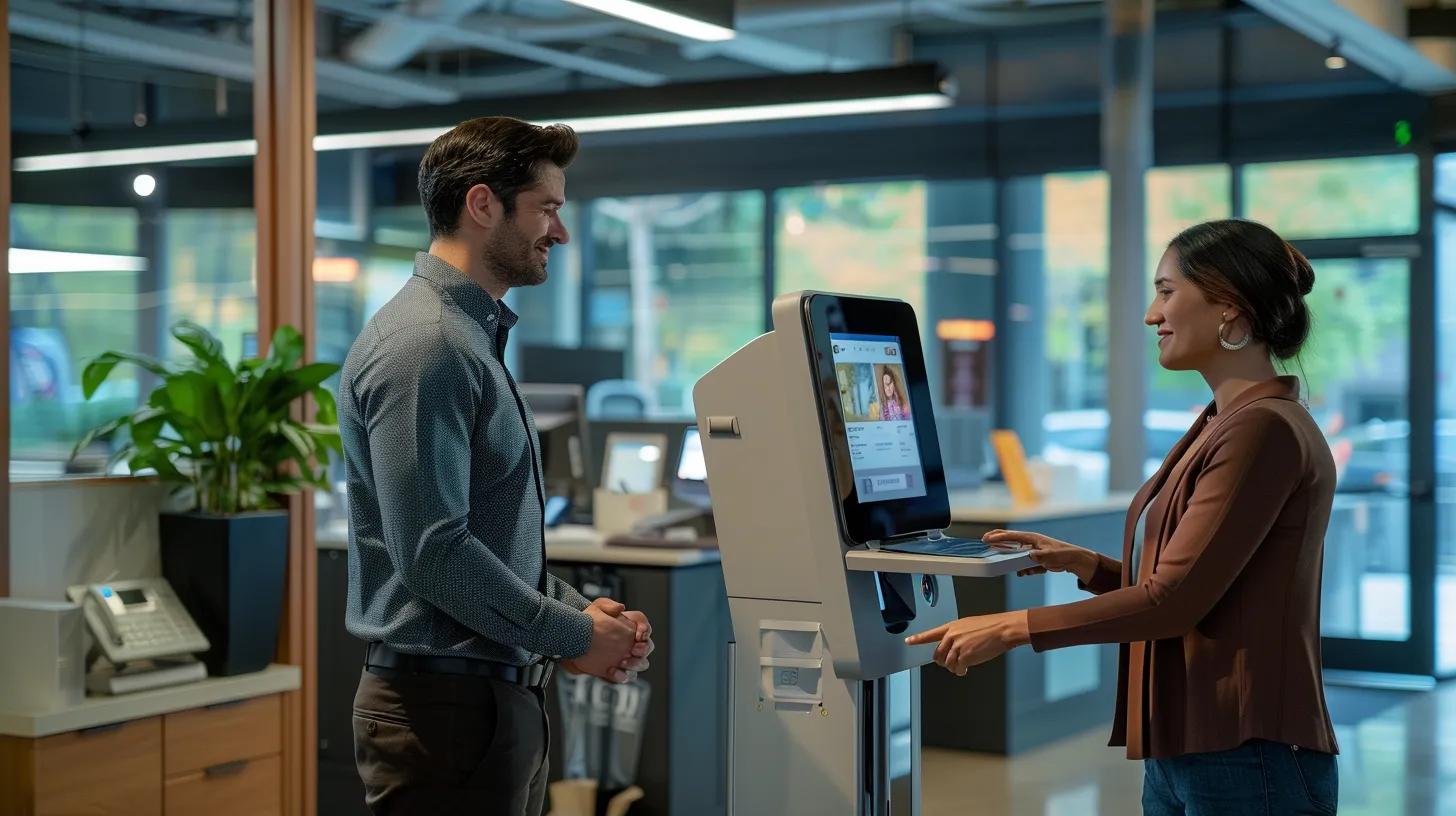In today’s competitive digital landscape, local reviews are more than just customer feedback—they’re powerful tools that can significantly boost your business’s visibility in local search results. Search engines like Google place a high value on authentic, location-specific reviews when determining how to rank businesses in local listings. Positive reviews help establish trust, drive traffic, and enhance your reputation, while also providing valuable keywords and signals that improve SEO. In this article, we’ll break down how to effectively collect, manage, and leverage local reviews to improve your search rankings and attract more nearby customers.
Mastering Local Reviews for Top Search Results
Why Are Local Reviews Crucial for Search Visibility?

Local reviews play a major role in how businesses are ranked and perceived online. They serve as a form of social proof, providing real feedback that influences both potential customers and search engine algorithms. When people search for a business or service near them, reviews often help determine which listings show up first, especially in the local map results.
Search engines consider several factors when evaluating reviews. The number of reviews, the quality of feedback, and how recently those reviews were posted all contribute to a business’s visibility. Consistent, positive feedback signals that a business is active, trustworthy, and engaging with customers.
Beyond influencing rankings, reviews also impact user behavior. A well-reviewed business is more likely to get clicks and, ultimately, conversions. When customers see a high rating with recent feedback, they feel more confident moving forward. This boost in trust can directly affect sales, foot traffic, or appointment bookings, depending on the type of business.
How Do Local Reviews Influence Local Search Rankings?
Search engines look at reviews as part of the broader content ecosystem. Every new review adds fresh, relevant language to a business’s profile. This user-generated content often includes specific phrases that match what other people are searching for. For example, someone might write, “best hair salon in Midtown,” which helps that business rank for similar queries.
Having a steady stream of reviews also shows that a business is engaged with its customers. Search engines interpret this activity as a signal of relevance. Businesses that consistently collect feedback are more likely to appear in local packs or near the top of organic search results. It’s not just about volume. The tone and content of reviews matter, too. If reviews regularly mention excellent service, fast response times, or competitive pricing, those themes help build a stronger case for the business’s relevance. Over time, this can lead to higher placement in search results.
What Role Do Customer Trust and Social Proof Play in Local SEO?
Customer trust is a key driver in local search performance. When users see dozens of positive reviews, it reinforces the idea that the business delivers a good experience. This type of social proof can be more persuasive than traditional advertising because it comes from real customers. Strong reviews also improve click-through rates from search engine results. When people see a business with a high rating and lots of reviews, they are more likely to visit the website or call directly. This increased engagement tells search engines that the listing is useful and relevant, which can further improve rankings.
Testimonials, star ratings, and review highlights all contribute to this effect. The more detailed and credible the reviews, the stronger the impact. Businesses that prioritize customer service and respond to reviews tend to build trust more effectively over time, which supports both reputation and search visibility.
Which Search Engines Prioritize Local Reviews?
Google places the highest weight on local reviews, especially those left on its own platform. Reviews from Google appear in map results, business panels, and search snippets. Bing and Yahoo also incorporate reviews into their local listings, though with less emphasis.
Other platforms, such as Yelp and TripAdvisor, play a supporting role. Their influence is especially strong in industries like hospitality, dining, and tourism. These reviews often appear in search results or are referenced by users during decision-making. Ultimately, consistent and authentic feedback across multiple platforms strengthens a business’s online presence. Regularly updated content, thoughtful responses, and a focus on the customer experience all contribute to how a business is ranked and viewed in local search.
How Can Businesses Collect More Positive Local Reviews?

Collecting positive reviews starts with delivering a good customer experience and following up in a timely, thoughtful way. When a customer has a positive interaction with your business, it’s important to make the review process as easy and accessible as possible. A simple request shortly after the service—whether by email, text, or in person—often gets the best results. Many businesses find that timing is key. Asking for feedback too late can lead to missed opportunities, while asking immediately, when the experience is still fresh, can improve response rates.
In addition to direct requests, maintaining a clear and consistent online presence plays a supporting role. Businesses that keep their online profiles updated, especially on review-driven platforms, give customers the confidence to engage. Clean, functional websites, accurate contact details, and clear messaging help support that first impression. When paired with a straightforward path to leave feedback, this creates a smoother experience for users and increases the likelihood of a review.
What Are Effective Ways to Encourage Customers to Leave Reviews?
Consistency and accessibility matter when encouraging reviews. Every customer touchpoint should include a subtle reminder to share their experience. This could be a brief message on a receipt, a follow-up email with a review link, or a friendly note at the end of a service interaction. The goal is not to pressure the customer but to open the door for them to provide honest feedback.
A personalized follow-up message often works better than a generic one. When a customer feels like the business genuinely values their opinion, they’re more likely to take a few minutes to leave a review. In-store reminders, such as a small sign at the checkout counter, also help keep the idea top of mind. These visual cues reinforce the idea that feedback is welcome and appreciated.
How Can Incentives and Follow-Ups Boost Review Volume?
Incentives can be effective when they’re used carefully and ethically. Offering something small—such as a discount on a future visit or entry into a giveaway—can motivate customers to leave a review, as long as the reward isn’t tied specifically to a positive rating. The key is to encourage participation without influencing the nature of the feedback.
Follow-ups are just as important. Sending a reminder 24 to 48 hours after the service keeps the interaction fresh in the customer’s mind. These messages should be brief, clear, and easy to act on. A direct link to your preferred review platform, a thank-you message, and a reminder of how much their opinion matters can go a long way. Businesses that automate this process through review management tools often see better results simply because the outreach is consistent and timely.
Which Review Platforms Should Local Businesses Focus On?
Not all review platforms carry equal weight. Google remains the most important, especially for local businesses, as its reviews appear directly in search results and map listings. A steady stream of recent, authentic reviews on your Google Business Profile can influence both rankings and customer trust. Yelp is especially useful for service-based industries such as restaurants, salons, and home repair. Other platforms like Facebook, TripAdvisor, and Trustpilot also play a role depending on the nature of the business. For most companies, focusing on a handful of relevant platforms allows for easier management and more consistent customer feedback.
Maintaining these profiles requires regular attention. This includes responding to reviews, correcting any incorrect business information, and updating images or business hours when needed. Consistent activity shows potential customers that the business is engaged and responsive. Over time, these efforts help build a reliable and positive online reputation, which can directly influence new business. Customers often read reviews before making a decision, so a strong review presence can set one company apart from another in a competitive market.
How to Respond to Local Reviews to Enhance Your Online Reputation

Responding to local reviews is one of the simplest ways businesses can improve their reputation and strengthen relationships with customers. Whether the review is positive or critical, a timely and thoughtful response shows that the business is paying attention. It also signals to future customers that feedback matters. While reviews help with visibility on platforms like Google, how you respond to them can influence how your brand is perceived overall.
A consistent review response strategy also contributes to search visibility. Search engines take note when businesses actively manage their online presence. That includes responding to reviews, keeping profile details updated, and making sure your website functions well. These actions send positive signals that your business is active and engaged.
What Are Best Practices for Responding to Positive Reviews?
Responding to positive feedback should feel natural, not scripted. Thank the customer by name if possible, and refer to a specific detail from their review. A simple “thank you” is a good start, but going a step further by acknowledging something they mentioned makes your reply feel more personal.
Mentioning that you look forward to serving them again also invites future interaction and helps reinforce loyalty. If appropriate, encourage them to follow your business on social media or stay updated through your newsletter. This keeps the relationship going beyond the review itself. Keeping your website updated with current business information also supports a smooth customer journey. A clean, functional website reflects professionalism and helps customers feel more confident in your business after reading reviews.
How Should Negative Reviews Be Handled to Protect Search Rankings?
Negative reviews can be frustrating, but they also present a chance to show integrity. Acknowledge the feedback without getting defensive. If there’s a clear mistake, own it. If the issue was more of a misunderstanding, explain your side while remaining respectful. Always thank the reviewer for taking the time to share their thoughts, even if the experience wasn’t ideal.
Offering to resolve the issue offline shows you’re willing to fix the problem. This doesn’t mean admitting fault in public, but rather showing that you’re open to discussion. Readers who come across a negative review with a calm, professional reply are likely to view your business more positively than if the comment were ignored. Regularly reviewing customer feedback can also highlight patterns. If you notice repeat complaints, use that insight to improve services or adjust internal processes. These changes help prevent future issues and can improve your overall reputation over time.
Can Responding to Reviews Improve Customer Loyalty and SEO?
Absolutely. When customers see that businesses care enough to reply, they’re more likely to come back. Even a brief message can reinforce trust. Review responses show that the business is listening, which encourages customers to share their experiences more often.
From a technical standpoint, review responses can also support SEO efforts. Search engines value fresh, relevant content, and replying to reviews with thoughtful language contributes to that. Including occasional keywords naturally within your responses can improve your visibility in local search results without overdoing it. Maintaining a consistent tone across all replies helps build a recognizable voice for your business. Whether someone finds you through a review site or your homepage, the experience should feel cohesive.
What Are the Best Ways to Showcase Local Reviews on Your Website?

Displaying local reviews on your website helps build trust and reinforces your credibility. When people visit your site and see that others have had a good experience, they’re more likely to follow through with a purchase or inquiry. Highlighting real feedback from customers makes your business feel more relatable and reliable.
One effective way to do this is by featuring reviews from platforms like Google. These reviews can be added directly to key landing pages or featured on a dedicated testimonial section. It’s not just about pasting quotes on your homepage, though. Incorporating visual elements like star ratings and customer photos helps create a more engaging experience.
Adding case studies or success stories that go into detail also makes a strong impression. While short reviews are good for social proof, case studies explain how you solved a problem or provided real value. These can be especially useful for service-based businesses. The more specific the example, the better it communicates your ability to meet customer needs.
Keeping your website up to date and easy to navigate is also important. If your review section feels neglected or is buried on your site, visitors may not see it. Make sure reviews are placed where people naturally look—near calls to action, product details, or contact forms.
How to Use Structured Data Markup for Local Reviews
Structured data markup, or schema, helps search engines understand the content of your site. When used with reviews, it can lead to rich results, like star ratings showing up directly in search listings. This can increase visibility and improve click-through rates. To set this up, businesses use review schema to label the reviewer’s name, the date of the review, the rating given, and the actual text of the review. The goal is to give search engines a clear picture of what the review says and how recent it is. Adding this markup requires some technical setup, but it pays off by making your search listings more noticeable. Rich results stand out in a sea of plain text, and that extra visibility can drive more traffic to your site.
Which Review Widgets and Plugins Boost User Engagement?
If you’re using WordPress, several plugins can make it easier to display reviews on your site. These tools often pull in reviews from Google, Facebook, or Yelp and let you display them in real time. They can be customized to match your site’s design and updated automatically as new reviews come in.
Review widgets can also offer features like filtering by rating, showing the most recent reviews, or sorting by topic. This makes the content more useful to visitors and keeps them engaged for longer. Some tools even include moderation options, so you can approve which reviews show up. While the technical setup can vary, most modern plugins are user-friendly and don’t require advanced coding skills. They also often integrate with analytics tools so you can measure how people are interacting with your review content.
How Do Testimonials and Case Studies Complement Local Reviews?
Testimonials and case studies serve as a deeper layer of social proof. A quick review might say your service was great, but a testimonial or case study can explain what made it great. This kind of detailed story gives potential customers more confidence, especially if they’re comparing providers. Case studies are particularly helpful in industries where purchases involve a higher level of trust. If your work involves long-term projects, specialized knowledge, or high cost, a detailed write-up of a successful client experience can be a major asset.
Unlike automated reviews, these pieces can be crafted with more strategy. You can highlight specific services, client industries, or outcomes that you want future customers to associate with your brand. The result is more than just praise—it’s proof that you can deliver. Bringing together reviews, testimonials, and case studies helps round out your online reputation. When presented clearly and supported by a well-functioning website, these elements work together to boost credibility and encourage conversion.
How Do Local Events and Community Engagement Amplify Review Impact?

Participating in local events and staying involved with the community can significantly increase both the volume and quality of online reviews. When people interact with your business in real-world settings—like festivals, fundraisers, or neighborhood workshops—they’re more likely to leave thoughtful, genuine feedback. These reviews don’t just build credibility. They also help with search visibility, especially when paired with consistent updates across your online platforms.
Being present at events helps customers associate your brand with familiar faces and community values. These real-life interactions create a stronger emotional connection, which can lead to more meaningful online feedback. It’s one thing for someone to say they like your product, but it carries more weight when they describe how your business supported a local cause or provided a helpful workshop. These moments stick with people.
Sharing photos, testimonials, or quick recaps of these events on your website or social channels also keeps the momentum going. This kind of content tells a story that potential customers can relate to and trust. Reviews that mention specific events often carry a more personal tone, making them stand out to both future customers and search engines.
Why Host Local Events to Generate Authentic Reviews?
Hosting local events gives your business a chance to engage directly with your audience in a meaningful way. Whether it’s a small community gathering, a customer appreciation day, or a charity drive, these settings encourage people to interact with your brand beyond a transaction. This leads to experiences worth sharing.
After an event, many businesses see a natural spike in online reviews. People are more likely to share their thoughts when the interaction feels personal and fresh. Encouraging reviews on the spot—through signs, QR codes, or quick reminders—helps capture that immediate reaction while it’s still top of mind.
The key is to create experiences that leave a lasting impression. A friendly conversation, a helpful demo, or a moment of generosity can all lead to a customer taking time to write a review later. The tone of these reviews often reflects the event’s energy, making them feel less like generic praise and more like personal endorsements.
How Can Supporting Community Initiatives Encourage Positive Feedback?
Getting involved in local causes is one of the most effective ways to earn long-term goodwill and positive attention. People notice when a business supports a school fundraiser, donates services, or volunteers at community events. These actions position your brand as more than just a provider of goods or services—they show that you’re part of something bigger.
This kind of involvement builds trust organically. Customers are more likely to leave positive reviews when they feel aligned with your values. If they see your business showing up consistently in community efforts, they’re more inclined to support you both in-person and online. You don’t need a massive budget to get involved. Even smaller gestures, like sponsoring a local youth team or offering space for a community class, can make a difference. These efforts show that your business cares, and that’s often enough to prompt someone to write a kind review or recommend you to a friend.
Making sure your online presence reflects these values is just as important. A well-written “About Us” page that touches on your community efforts helps reinforce that image. Likewise, sharing event recaps or customer feedback related to these initiatives keeps the story going and encourages others to participate or leave reviews of their own. Over time, these efforts contribute to a stronger reputation, higher local search visibility, and a growing list of genuine customer testimonials—all grounded in real relationships and experiences.
How to Monitor and Analyze Local Reviews for Continuous SEO Improvement?

Monitoring customer reviews is a key part of maintaining a strong online presence. Reviews offer more than just feedback—they reveal patterns in customer experience that can directly impact search performance. Consistently tracking this feedback helps businesses understand what customers value, where there’s room for improvement, and how to align those insights with their SEO goals.
By reviewing data from platforms like Google Business Profile and third-party tools, businesses can see trends in review volume, average ratings, and customer response times. These metrics offer a clear picture of how the public perceives your brand over time. They can also highlight which services or locations are performing well and which ones might need more attention.
This kind of monitoring supports more than customer service. It’s directly tied to how visible your business is in local search results. Search engines value fresh, consistent, and positive reviews. They signal credibility, activity, and trust—all important for search rankings. When used alongside analytics tools that track traffic and engagement, review data becomes a foundation for refining your broader digital strategy.
Which Tools Help Track Local Review Performance?
Several platforms can help businesses track and analyze review performance. Google Business Profile provides built-in insights such as search impressions, clicks, and actions taken from your listing. These metrics offer a basic view of how users engage with your business online.
For deeper insights, tools like BrightLocal, ReviewTrackers, and Yext can be helpful. These platforms allow businesses to track reviews across multiple sites, assess customer sentiment, and even monitor how their reviews compare with competitors. Features like keyword tracking and response time analysis can also help businesses better understand how their team interacts with customer feedback. Using these tools in combination with search analytics gives businesses a full view of how reviews impact traffic and engagement. With everything in one place, it becomes easier to adjust strategies quickly based on real-world feedback.
How to Interpret ReviewData to Refine Marketing Strategies
Interpreting review data means looking at both numbers and the content behind them. Metrics like star ratings, review frequency, and volume over time give you a snapshot of customer sentiment. But digging into the text reveals more detail. Pay attention to recurring phrases, service-specific comments, and tone. These elements point to what your customers care most about.
Positive patterns can be amplified in your marketing. If people consistently mention fast service or helpful staff, highlight those traits in your messaging. On the other hand, repeated concerns should guide changes in customer experience or training. This also applies to content decisions—frequently mentioned services or products may deserve more visibility on your website or in email campaigns. Tracking review trends alongside web analytics helps connect the dots between feedback and site performance. For instance, a spike in positive reviews might align with a boost in local search traffic. That’s a sign your review strategy is working and can be scaled further.
What Metrics Indicate Review Impact on Search Visibility?
Some of the clearest indicators of review impact include the average star rating, total review count, and how recent your latest reviews are. These factors all contribute to how often your business appears in local search results and how appealing it looks to users. Click-through rates are another strong indicator. If users are seeing your business in search results but not clicking, something in your ratings or presentation may be causing hesitation. On the other hand, high engagement from review-driven visits suggests that your online reputation is attracting the right audience.
Monitoring conversions—such as form fills, phone calls, or purchases that originate from a review-related search—also helps track the business value of online feedback. These metrics can be strengthened by refining your website’s content and design to align with what customers mention most often. When viewed regularly, this data supports informed decisions that improve both search visibility and customer experience. Local reviews are not just testimonials. They’re a dynamic feedback loop that, when properly managed, can drive long-term growth.
What Legal and Ethical Considerations Should Businesses Know About Local Reviews?

Managing online reviews isn’t just about reputation—it’s also about staying on the right side of search engine policies and consumer protection laws. Ethical review practices are essential. Search engines like Google, along with platforms such as Yelp and the Better Business Bureau, have clear guidelines that prohibit misleading behavior, including fake reviews and overly aggressive solicitation tactics.
To maintain compliance, businesses should monitor reviews regularly and respond professionally. That includes having clear internal policies around how reviews are requested and displayed. Reviews should reflect honest customer experiences. Trying to control or influence the tone of those reviews too much can result in penalties, including lower search rankings or even removal from certain listings.
It’s also important to keep your digital infrastructure up to date. A site that loads slowly, lacks transparency, or has missing business details undermines credibility. Regular updates to your website, including content, visual identity, and company information, help reinforce your brand’s legitimacy and create a trustworthy environment for customers to share their feedback.
Are Incentivized Reviews Allowed by Search Engines?
Incentivizing reviews is a gray area and, when done improperly, can lead to problems. While offering something small in exchange for feedback might seem harmless, platforms like Google explicitly discourage reviews tied to rewards, especially if the incentive is only given for positive reviews.
The better approach is to create experiences that naturally motivate customers to leave reviews. That might include excellent service, follow-up communication, or even just a simple, well-timed request. Encouraging honest feedback, regardless of sentiment, is more sustainable in the long run. It also helps create a more accurate reflection of customer experiences, which is valuable for both potential clients and internal improvement. Tracking these interactions through analytics tools can provide insight into what drives engagement. It also helps businesses refine their review strategy while staying within the bounds of accepted practice.
How to Avoid Fake Reviews and Maintain Authenticity
Fake reviews can be tempting shortcuts but carry long-term risks. It’s better to invest in systems that encourage authentic customer feedback. Verified purchase systems, third-party review platforms, and direct customer outreach all help ensure legitimacy. Internally, staff should be trained on ethical review practices. That includes understanding how and when to ask for reviews, and how to recognize questionable behavior, such as review spikes from a single location or identical responses across platforms.
Regular monitoring can catch suspicious patterns early. If flagged, these issues should be investigated and, if necessary, reported or removed. The goal is to maintain transparency and build real trust, not just inflate ratings. Staying authentic also means showing a full range of customer experiences. A perfect five-star average can sometimes come off as suspicious. A few moderate reviews, especially when followed by thoughtful responses, often enhance credibility more than an unrealistic score ever could.
What Are the Consequences of Manipulating Local Reviews?
Review manipulation can backfire quickly. If caught, businesses risk losing visibility in search results, being delisted from maps or directories, and losing credibility with customers. Once a reputation is damaged in this way, it can be difficult to recover. More importantly, manipulating reviews undermines the value of genuine feedback. It distorts the customer journey and gives potential clients a false sense of what to expect. That disconnect can lead to poor service experiences, negative word of mouth, and ultimately lost business.
Instead, the focus should be on building a culture of transparency. Businesses that engage openly with both positive and negative feedback tend to earn more respect. They also create a feedback loop that supports improvement, fosters loyalty, and strengthens long-term brand visibility online. Staying ethical doesn’t just protect your search presence. It builds the kind of trust that turns customers into advocates, which is the most effective marketing of all.
Final Thoughts
Encouraging and managing local reviews can transform your search visibility, boosting your rankings, building trust, and driving more foot traffic or local inquiries. By actively soliciting feedback, responding thoughtfully, and showcasing positive experiences, you’ll strengthen your online reputation and stand out in local search results. Ready to harness the power of customer reviews and elevate your local presence? Newman Web Solutions is here to help. Call us at (404) 301-9189 or schedule a free 30-minute strategy session today to get started!





